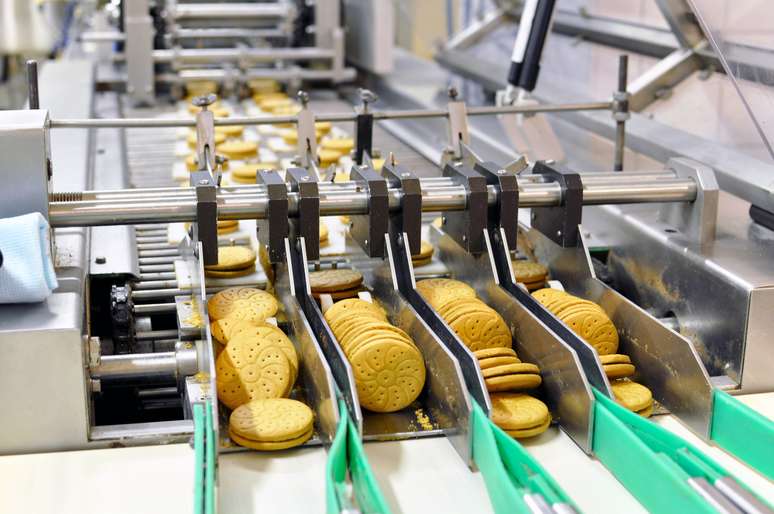Introduction
Private label specialized foods have actually acquired tremendous popularity over the last few years. With customers seeking distinct and customized food alternatives, private label food have ended up being a best choice for several. In this write-up, we will delve into the elaborate procedure of private label food manufacturing, discovering the actions included and the principals in the industry.

The Increase of Private Label Food Manufacturers in Australia
Australia has actually experienced a significant surge secretive label food producers. With customers becoming a lot more conscious regarding their nutritional choices and demanding top notch items, private label food manufacturing has emerged as a lucrative service opportunity. These manufacturers cater to numerous segments, including exclusive label cheese, snack food manufacturers, and more.
Understanding Private Label Food Manufacturing
Private tag food manufacturing entails developing and creating food products for retailers or services who private label food production then market these items under their very own trademark name. This process permits stores to provide unique offerings to their clients without spending heavily in r & d or manufacturing infrastructure.
Key Tips Associated with Private Label Food Manufacturing
Step 1: Product Development and Customization
Private label food producers work closely with stores to comprehend their demands and create personalized products. This step involves conceptualizing sessions, marketing research, and recipe formulation. Exclusive label specialty foods are made to deal with specific customer choices and nutritional needs.
Step 2: Sourcing Ingredients
Once the product specifications are completed, private label food manufacturers source top notch active ingredients from trusted distributors. They guarantee that all components satisfy strict quality standards and adhere to policies set by pertinent authorities.
Step 3: Manufacturing and Packaging
After acquiring the components, private label food production starts. The production centers use cutting edge tools and adhere to rigorous health methods to produce risk-free and tasty food products. Product packaging is also an important component of this step, making certain that the product stays fresh while attracting consumers.
Step 4: Quality Assurance and Testing
Private tag food producers conduct strenuous quality control checks at every phase of the manufacturing procedure. This includes evaluating the ingredients, checking assembly line, and performing sensory analyses. These procedures make certain that the end product meets the best quality standards.
Step 5: Classifying and Compliance
Once the products are produced and top quality examined, private label food makers handle labeling and compliance. They ensure that all information on the product tags is exact and complies with governing guidelines. This step is essential to provide customers with transparent information concerning the item's components and dietary values.
Advantages of Private Label Food Manufacturing
Private label food manufacturing offers a number of benefits for both sellers and customers. Let's check out a few of these benefits:
Customization: Stores have the freedom to develop unique items customized to their target market, permitting them to distinguish themselves from competitors.
Cost-effectiveness: Private label food producers supply affordable services by getting rid of the demand for merchants to invest in study, advancement, and production infrastructure.
Control over branding: Sellers can develop their brand name photo by advertising private label foods under their own name. This enables them to develop count on and commitment amongst consumers.
Flexibility: Private label food production offers stores with versatility in regards to item offerings. They can easily adjust to transforming customer fads and preferences.
Higher earnings margins: With lowered production costs, stores can appreciate higher profit margins on private label food products compared to branded alternatives.
Quality assurance: Private label food producers focus on quality control actions, making sure that retailers receive constant and high-grade products for their customers.
FAQs concerning Private Label Food Manufacturing
Q1: What is the duty of private label food manufacturers?
A1: Private label food manufacturers play a vital duty in creating customized food products for sellers or businesses who market them under their very own brand name.

Q2: Exactly how does private label food production advantage retailers?
A2: Private label food production enables sellers to offer one-of-a-kind products, construct their brand name image, and delight in higher earnings margins compared to branded alternatives.
Q3: Can private label food producers deal with details dietary preferences?
A3: Yes, private label food manufacturers can create products tailored to specific dietary needs and choices, consisting of gluten-free, vegan, or organic options.
Q4: Are there any guidelines regulating private label food manufacturing?
A4: Yes, private label food suppliers should abide by laws set by appropriate authorities regarding component sourcing, labeling, and high quality control.
Q5: Can private label food suppliers deal with large production?
A5: Yes, private label food makers have the abilities to handle both small and large-scale manufacturing based on the retailer's requirements.
Q6: How can stores guarantee the quality of private label food products?
A6: Sellers need to team up with trusted private label food manufacturers that prioritize stringent quality assurance actions and have a track record of providing outstanding products.
Conclusion
Private tag food manufacturing offers a world of possibilities for sellers aiming to provide special and customized offerings to their clients. With a structured process entailing product advancement, component sourcing, production, packaging, and quality control, personal tag specialty foods have actually gained enormous popularity. By partnering with dependable private label food suppliers in Australia or any type of other region, stores can develop their brand name identification while enjoying cost-effectiveness and adaptability in their item offerings. So why wait? Dive into the amazing world of exclusive tag foods today!